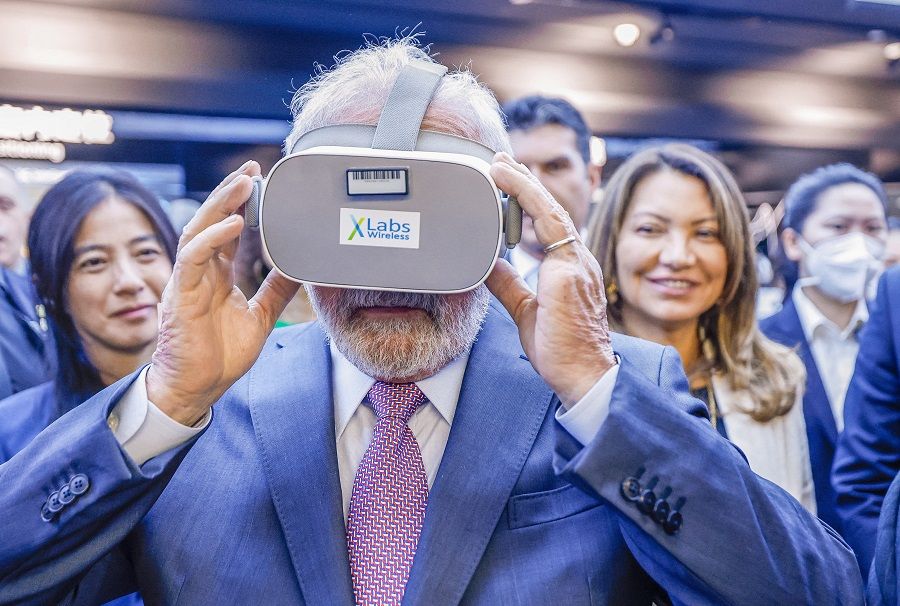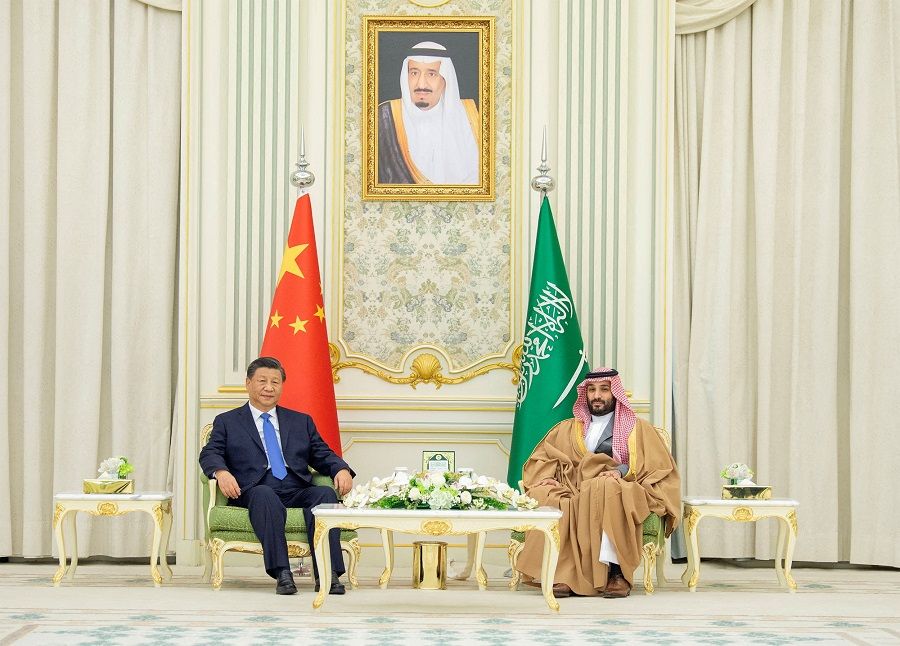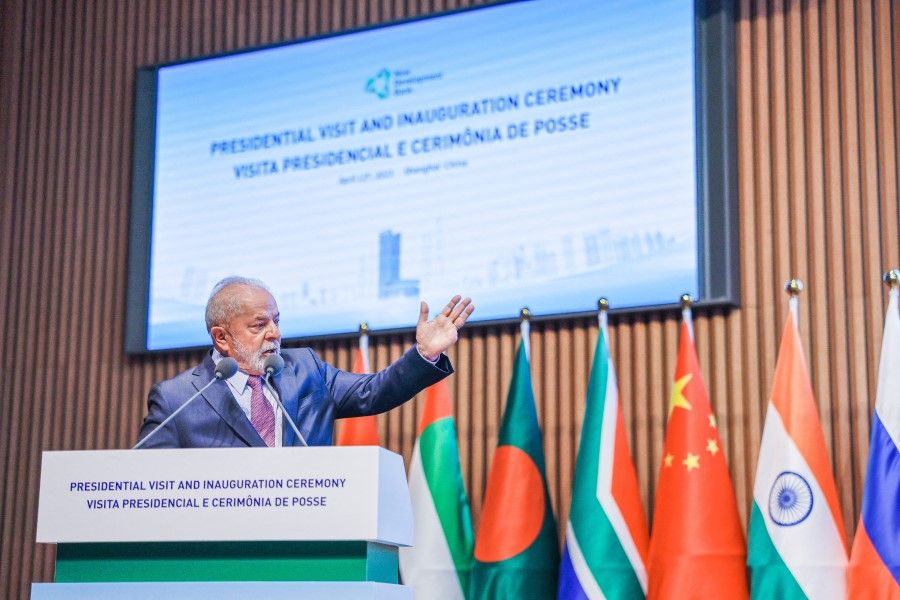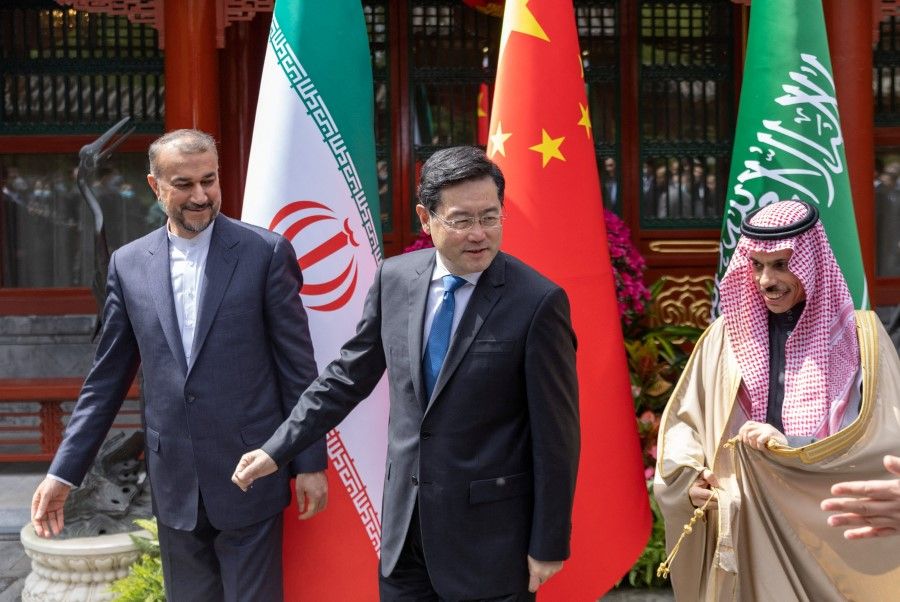Slowly but surely: China partnering Brazil to weaken US dollar hegemony?

Shortly after the departure of French President Emmanuel Macron, Brazilian President Luiz Inácio Lula da Silva arrived in China. His high-profile visit strengthens the economic and trade cooperation between the two major developing countries, with Lula having no qualms about stepping into a "US minefield" by touring Huawei's innovation centre in Shanghai on 13 April.
Undermining US dollar hegemony
Upon arriving in Shanghai late Wednesday night (12 April), the grand delegation of nearly 300 politicians and business representatives led by Lula was greeted by warm hospitality and a charm offensive from China. Vice Minister of Foreign Affairs Xie Feng personally came to Shanghai to receive them at the tarmac of Shanghai Pudong International Airport.
The Chinese media referred to 78-year-old Lula as "an old friend of the Chinese people". During his previous term in office, Lula had already placed great importance on Brazil's relationship with China. And shortly after returning to office in January this year, he embarked on his fifth visit to China in his career.
Indeed, the expansion of the RMB's "circle of friends" is a boon for China - it is not only a step forward for RMB internationalisation but also a confidence booster in China's competition with the US.

The visit was initially scheduled for late March but was postponed after Lula contracted pneumonia. However, the Brazilian government went ahead to announce on 29 March that both countries will no longer use the US dollar as an intermediary in trade transactions but trade in their own currencies instead. This significant event should be more upsetting for the US than Lula's visit to Huawei.
Indeed, the expansion of the RMB's "circle of friends" is a boon for China - it is not only a step forward for RMB internationalisation but also a confidence booster in China's competition with the US.
Amid China-US rivalry, China's expansion of RMB settlements in international trade is a lesson learned from Russia's experience of having hundreds of billions of dollars of its assets frozen under US sanctions. Looking at it in terms of taking an assertive stance, this also encompasses the Chinese idea to undermine US dollar hegemony.
More trading, more RMB settlement
The goal to "promote the internationalisation of the RMB in an orderly way" was written into the Chinese Communist Party's 20th Party Congress report last October. Evidently, it is a much more proactive stance when compared with the People's Bank of China's prior goal to "steadily and prudently" promote RMB internationalisation.
Under this new goal, Chinese President Xi Jinping called for oil and gas trade settlement in RMB at the China-Gulf Cooperation Council Summit in Saudi Arabia last December.
Although Saudi Arabia did not agree at the time, Saudi Finance Minister Mohammed Al-Jadaan revealed a month later that the country is open to settling trade in currencies other than the US dollar. This February, Iraq's central bank confirmed that it will allow trade with China to be settled directly in RMB. Then came the news that China and Brazil will also settle trade in their own currencies.

Before Lula's plane landed in Shanghai, the Industrial and Commercial Bank of China (Brazil) successfully processed its first cross-border RMB settlement, a move described as "old friend" Lula's big gift to China.
The trade volume between China and Brazil is considerable, reaching US$171.49 billion in 2022, an increase of 4.9% year-on-year. China has also invested heavily in Brazil, mainly in high-voltage transmission lines and oil extraction.
The two countries are now ready to expand their economic cooperation beyond iron ore and agricultural products. International media reports suggest that during Lula's visit to China, the two sides are expected to sign 20 economic and trade cooperation agreements, including joint construction of another satellite, cooperation in the carbon market, and China's purchase of 20 Brazilian-made commercial aircraft. Analysts also forecast that Brazil will join China's Belt and Road Initiative.
If the BRICS countries settle bilateral trade in their own currency or the RMB, it will definitely have a significant impact on the international status of the US dollar.
On 13 April, during Lula's speech at the inauguration of Dilma Rousseff as president of the New Development Bank (also known as the BRICS Development Bank) in Shanghai, he questioned why every country should be tied to the US dollar for trade, and why the international currency cannot be in RMB or other currencies.

This year, the BRICS countries will decide whether to expand its membership, and 12 countries including Iran, Saudi Arabia and Argentina have already applied to join. If the BRICS countries settle bilateral trade in their own currency or the RMB, it will definitely have a significant impact on the international status of the US dollar.
China's contribution to global growth
Of greater note is China's flurry of diplomatic initiatives this year. After successfully mediating the resumption of diplomatic relations between Saudi Arabia and Iran in March, last week Beijing drew French President Emmanuel Macron closer on the Taiwan issue. With Lula's grand reception this week, it can be said that China is making headway on all three fronts in the Middle East, Europe and South America, and rupturing the containment with three shots in a row.
Confidence in the US economy and the US dollar has been shaken; it is every man for himself as everyone wants other options to mitigate risks, which presents an opportunity for China.
This cannot simply be attributed to China's strong influence, but its successful leveraging of opportunities. Whether in the Middle East, Europe or South America, local participants play a more critical role, and everyone has their own strategic considerations and problems to resolve.
For example, Saudi Arabia and Iran held multiple rounds of talks in 2021 to resolve their conflicts, while the issue of "de-Americanisation" of Latin American countries has been around for more than ten years. China's involvement merely provides trade incentives and support for whatever these countries decide to do.

The US economic outlook this year is bleak, and the International Monetary Fund forecasts that China will contribute a third of global growth, which has raised China's profile this year. Confidence in the US economy and the US dollar has been shaken; it is every man for himself as everyone wants other options to mitigate risks, which presents an opportunity for China.
However, negative factors such as China's opaque decision-making process and strict supervision of cross-border RMB flow remain, and there is a long way to go for RMB internationalisation.
If we imagine the tussling between China and the US as a competition, it is still in the early stages, and it is uncertain who will gain the upper hand in the next round. What is certain is that China will grow in experience and skills, and the competition will intensify.
This article was first published in Lianhe Zaobao as "卢拉访华送大礼".
